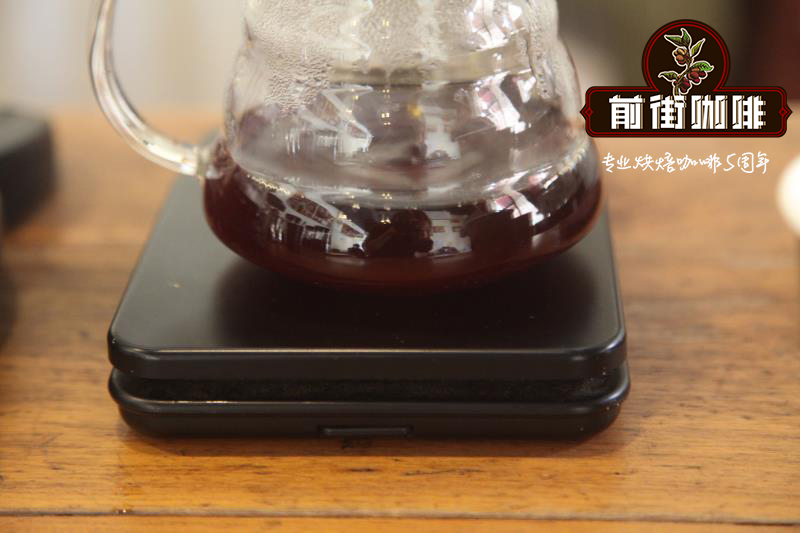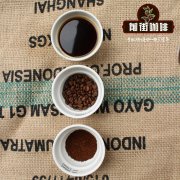Discussion on Coffee Water quality: effect of different Water on Coffee extraction

Professional coffee knowledge exchange more coffee bean information please follow the coffee workshop (Wechat official account cafe_style)
Why TDS and PPM- are different in Water
Water is usually not just water, but also contains "total dissolved solids" (TDS), that is, tiny minerals and organic matter that pass through the soil, water purification plants or water supply systems, and finally remain in the water, affecting the finished product of coffee.
However, the ways and degrees to which they affect coffee vary, depending on the "PPM" of water and the substances it consists of. Common substances are magnesium, calcium, and bicarbonate, all of which greatly affect the flavor of coffee. For example, Maxwell Colonna-Dashwood and Christopher Hendon found that bicarbonate can regulate the sour taste of coffee, making the flavor tame, if the concentration is not right, coffee may taste insipid, unlike coffee.
"it's hard to tell the difference in TDS content when drinking plain boiled water," Ivan said. But he believes that when water is used to brew coffee, we can clearly tell the difference between water. A wide variety of minerals not only affect the taste of coffee, but also influence the way it is extracted.
Ivan stressed: "if the water quality is unstable, you will not be able to make coffee of the same quality. when the water quality is not satisfactory, you can only make mediocre coffee, and only the most suitable water can make good coffee." "but what is the most suitable water?
Detect different kinds of water
In search of extraordinary follicular coffee, Ivan tested many kinds of water and said he thought the most suitable water should have a mineral content of between 75 and 180 PPM. In fact, he mixed a variety of bottled water (with a total amount of dissolved solids ranging from high to low) to make the concentration of the water accurate to 137 PPM.
Recently, he held a lecture on coffee product evaluation, which aims to compare the taste and aroma of coffee using the following water sources: tap water, filtered water, and his "homemade water". The only variable for brewing three kinds of coffee is water, and the other conditions are the same.
How did it turn out? "Coffee made from tap water is really bad," he said. "I can't accurately describe its flavor, but it just tastes bad. The filtered water gives the coffee a strong sour taste. But when it comes to coffee brewed with "homemade water", Ivan says it tastes "mellow, pure sour and has no obvious drawbacks."
In the same way, he brewed the fourth kind of coffee with the usual bottled water, but that brand of water contained a lot of bicarbonate, so the coffee lost its aroma and affected its flavor.
In other words, water is important, but we may not always be able to use the most suitable water.
Important Notice :
前街咖啡 FrontStreet Coffee has moved to new addredd:
FrontStreet Coffee Address: 315,Donghua East Road,GuangZhou
Tel:020 38364473
- Prev

Coffee knowledge: whether there is a standard difference in the size of coffee powder has any effect on the flavor.
Professional coffee knowledge exchange more coffee bean information please follow the coffee workshop (Wechat official account cafe_style) everyone wants to drink good coffee, sweet and palatable, with explosive aroma and long finish, and hope to drink this kind of coffee every time. There are many factors that affect the taste of coffee: time, temperature, brewing utensils, etc., but the most important thing is to make a good coffee.
- Next

Coffee taste: why coffee is so bitter and how to drink it? you need to understand the bitterness of coffee.
Professional coffee knowledge exchange more coffee bean information please follow the coffee workshop (Wechat official account cafe_style) bitter taste is not good? In fact, the bitter taste is not so bad. In fact, if the coffee is not blended with bitter taste, it may taste too sour or too sweet. The key is "balance". A little bitterness can bring out more rich and diverse flavor levels, as long as the bitterness is not too heavy.
Related
- Beginners will see the "Coffee pull flower" guide!
- What is the difference between ice blog purified milk and ordinary milk coffee?
- Why is the Philippines the largest producer of crops in Liberia?
- For coffee extraction, should the fine powder be retained?
- How does extracted espresso fill pressed powder? How much strength does it take to press the powder?
- How to make jasmine cold extract coffee? Is the jasmine + latte good?
- Will this little toy really make the coffee taste better? How does Lily Drip affect coffee extraction?
- Will the action of slapping the filter cup also affect coffee extraction?
- What's the difference between powder-to-water ratio and powder-to-liquid ratio?
- What is the Ethiopian local species? What does it have to do with Heirloom native species?

